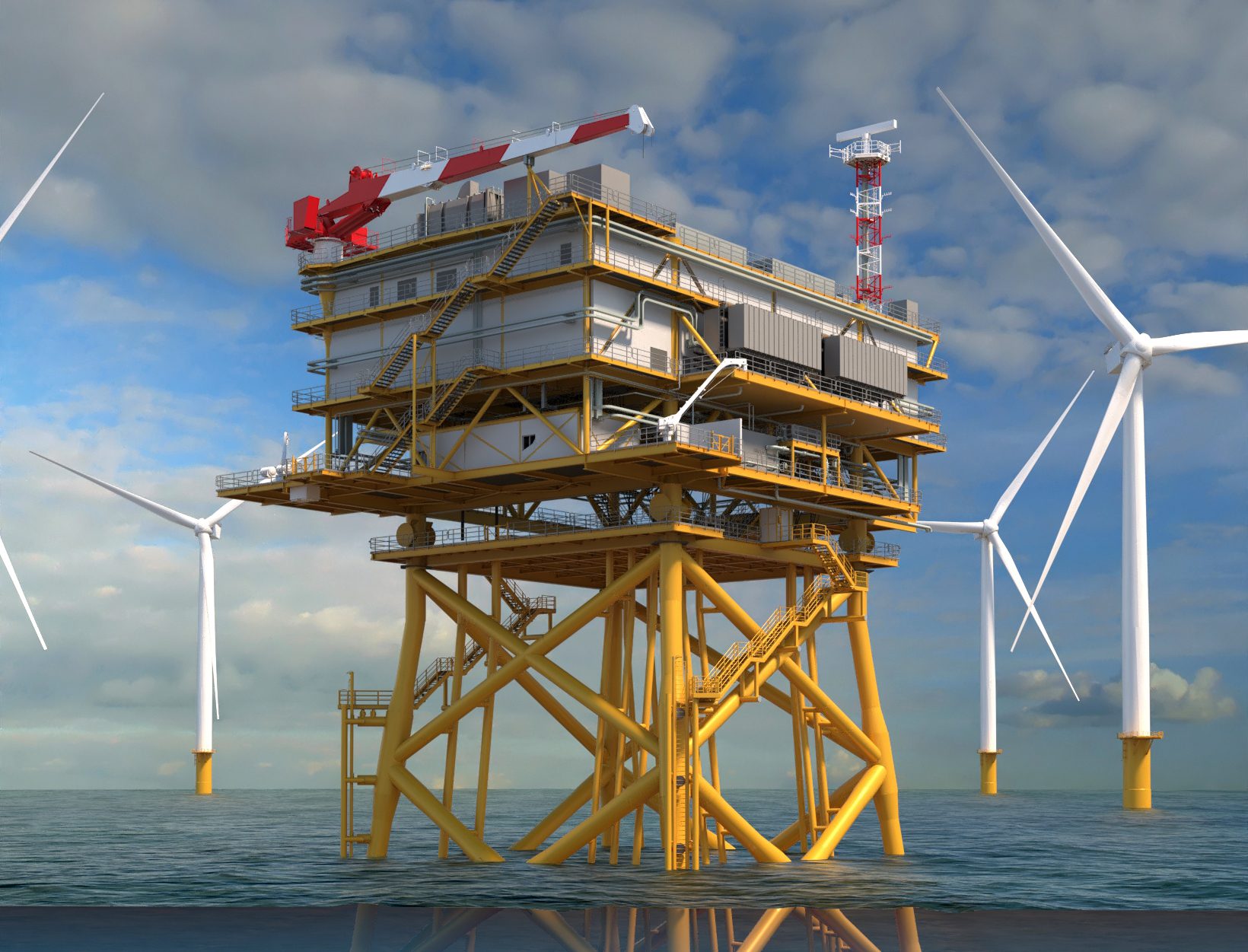Auto Dealerships Increase Pressure Against Mandatory EV Sales

Table of Contents
Financial Concerns of Dealerships Regarding EV Transition
The shift to electric vehicles presents significant financial challenges for auto dealerships, threatening their profitability and long-term viability. These concerns are fueling their opposition to mandatory EV sales targets.
High Initial Investment Costs
Transitioning to selling and servicing EVs requires substantial upfront investment. Dealerships face considerable expenses in upgrading their infrastructure to accommodate this new technology.
- Costs of installing Level 2 and DC fast chargers: The installation of charging stations, especially the more powerful DC fast chargers, represents a significant capital expenditure.
- Employee training programs: EVs require specialized knowledge for servicing and repair, necessitating comprehensive training programs for dealership technicians. This includes training on high-voltage systems, battery management, and specialized diagnostic tools.
- Updating service bays: Service bays may need modifications to handle the unique requirements of EV maintenance and repair, including specialized lifts and safety equipment.
These costs place a particularly heavy burden on smaller dealerships with limited financial resources, potentially forcing them out of business or hindering their ability to compete effectively.
Lower Profit Margins on EVs
Dealerships also express concerns about potentially lower profit margins on EV sales compared to gasoline-powered vehicles.
- Reduced service revenue: EVs have fewer moving parts than internal combustion engine (ICE) vehicles, leading to potentially less frequent and less costly maintenance.
- Increased competition: The EV market is becoming increasingly competitive, with established automakers and new entrants vying for market share, putting downward pressure on prices and profit margins.
- Government subsidies affecting pricing: Government subsidies and tax incentives aimed at making EVs more affordable can also compress profit margins for dealerships.
This reduced profitability threatens the dealerships' revenue streams and overall financial health, further intensifying their resistance to mandatory EV sales.
Uncertainty in EV Market Demand
The future demand for EVs remains uncertain, adding another layer of financial risk for dealerships.
- Charging infrastructure availability: The lack of widespread charging infrastructure, especially in rural areas, remains a significant barrier to EV adoption and consumer confidence.
- Battery range anxiety: Concerns about limited driving range and the availability of charging stations continue to deter potential EV buyers.
- Purchase price: The higher initial purchase price of EVs compared to comparable gasoline vehicles remains a deterrent for many consumers.
This uncertainty makes it difficult for dealerships to accurately predict EV sales, increasing the risk of overstocking and incurring significant losses if demand does not meet government targets.
Operational Challenges Faced by Dealerships in EV Adoption
Beyond the financial concerns, dealerships also grapple with significant operational challenges in adapting to the EV market. These challenges further fuel their opposition to mandatory EV sales.
Lack of Technician Expertise
Servicing and repairing EVs requires specialized skills and training that many existing technicians lack.
- Specialized tools and knowledge: Working on high-voltage systems requires specialized tools and a deep understanding of EV technology, including battery management systems and electric motors.
- Longer training periods: Training technicians to service EVs requires significantly more time and resources than training them on traditional ICE vehicles.
This skills gap could lead to service delays, increased repair costs, and reduced customer satisfaction, impacting dealership reputation and profitability.
Inventory Management Difficulties
Managing EV inventory presents unique challenges due to longer lead times and fluctuating demand.
- Difficulties in predicting EV sales: The relatively new nature of the EV market makes accurate sales forecasting difficult.
- Potential for increased storage costs: EVs may require specific storage conditions, potentially increasing storage costs for dealerships.
- Managing diverse vehicle types: Dealerships must manage both traditional ICE vehicles and EVs, requiring more sophisticated inventory management systems.
These challenges impact dealership operational efficiency and add to the overall financial burden of the transition.
Charging Infrastructure Limitations
Installing and maintaining sufficient charging infrastructure represents a significant operational hurdle for many dealerships.
- High costs of installing charging stations: The cost of installing and maintaining charging stations, including the necessary electrical upgrades, can be substantial.
- Space limitations at dealerships: Many dealerships have limited space available for installing charging stations, hindering their ability to provide adequate charging capacity for their customers.
- Reliance on grid capacity: The ability to install sufficient charging infrastructure also depends on the capacity of the local electricity grid.
The lack of sufficient charging infrastructure can negatively impact customer experience and potentially deter potential EV buyers.
Lobbying Efforts and Political Pressure from Auto Dealerships
Faced with these financial and operational challenges, auto dealerships are actively lobbying against mandatory EV sales targets.
Industry Associations and Advocacy Groups
Various automotive industry associations and advocacy groups are actively engaged in lobbying efforts.
- National Automobile Dealers Association (NADA) (Example): These associations represent the interests of dealerships and are actively engaged in lobbying efforts to influence government policy related to EV sales mandates. They often use legal challenges and public awareness campaigns to advocate for their position.
These groups wield significant political influence, shaping policy discussions and decisions regarding EV adoption.
Arguments Used Against Mandatory EV Sales
Dealerships employ several key arguments against mandatory EV sales targets:
- Market readiness concerns: Dealerships argue that the market is not yet ready for the rapid transition to EVs, citing concerns about charging infrastructure, consumer demand, and the availability of affordable EVs.
- Consumer choice limitations: They argue that mandatory EV sales limits consumer choice and restricts access to the vehicle types that best meet individual needs.
- Economic impact on dealerships and the broader economy: They highlight the potential negative economic consequences for dealerships and the broader automotive industry, including job losses and business closures.
These arguments fuel the ongoing debate surrounding the optimal pace and approach to EV adoption.
Conclusion
The opposition from auto dealerships to mandatory EV sales is driven by a combination of financial concerns, operational challenges, and a belief that a more gradual transition is necessary. Their lobbying efforts highlight the complexities of transitioning to a sustainable automotive future. High initial investment costs, lower profit margins on EVs, uncertainty in market demand, and operational challenges related to technician expertise, inventory management, and charging infrastructure all contribute to their resistance. The dealerships’ concerns, however, need to be balanced against the urgent need to address climate change and improve air quality. Further research and open dialogue are vital to navigate these complexities and develop effective policies that support both the transition to electric vehicles and the long-term viability of the automotive retail sector. Finding solutions that address the concerns regarding mandatory EV sales while still achieving ambitious EV adoption targets remains a significant challenge.

Featured Posts
-
 Two Days Of Crypto Chaos A Wild Party Report
May 04, 2025
Two Days Of Crypto Chaos A Wild Party Report
May 04, 2025 -
 Darjeelings Slow Moving Traffic A Growing Concern
May 04, 2025
Darjeelings Slow Moving Traffic A Growing Concern
May 04, 2025 -
 Expensive Offshore Wind Farms Are They Losing Their Appeal
May 04, 2025
Expensive Offshore Wind Farms Are They Losing Their Appeal
May 04, 2025 -
 Effective Middle Management Key To Employee Engagement And Business Growth
May 04, 2025
Effective Middle Management Key To Employee Engagement And Business Growth
May 04, 2025 -
 Falling Production Examining The Challenges Facing Darjeeling Tea
May 04, 2025
Falling Production Examining The Challenges Facing Darjeeling Tea
May 04, 2025
Latest Posts
-
 Murder Charge Filed Against Stepfather Accused Of Torturing Starving And Beating 16 Year Old Stepson
May 04, 2025
Murder Charge Filed Against Stepfather Accused Of Torturing Starving And Beating 16 Year Old Stepson
May 04, 2025 -
 Stepfather Faces Murder Charges In Stepsons Death Allegations Of Torture Starvation And Assault
May 04, 2025
Stepfather Faces Murder Charges In Stepsons Death Allegations Of Torture Starvation And Assault
May 04, 2025 -
 Hospital Hammer Incident Belfast Mans Violent Past Revealed
May 04, 2025
Hospital Hammer Incident Belfast Mans Violent Past Revealed
May 04, 2025 -
 Emma Stone And Margaret Qualley Oscars Incident Fact Or Fiction
May 04, 2025
Emma Stone And Margaret Qualley Oscars Incident Fact Or Fiction
May 04, 2025 -
 The Truth Behind The Emma Stone Margaret Qualley Oscars Drama
May 04, 2025
The Truth Behind The Emma Stone Margaret Qualley Oscars Drama
May 04, 2025
